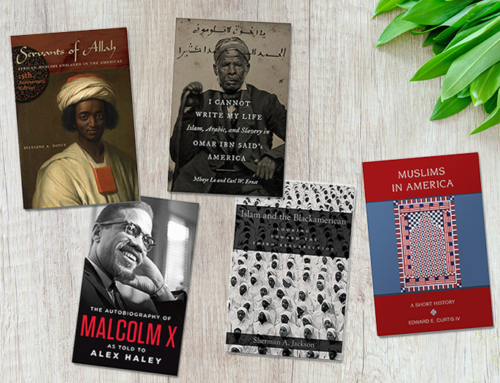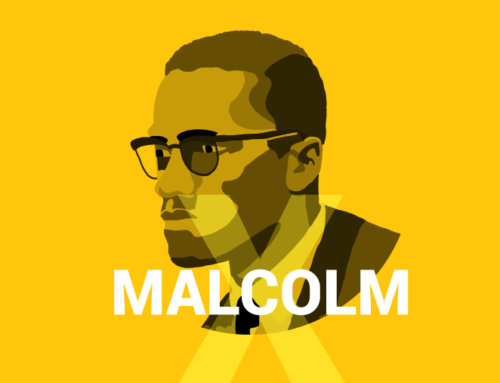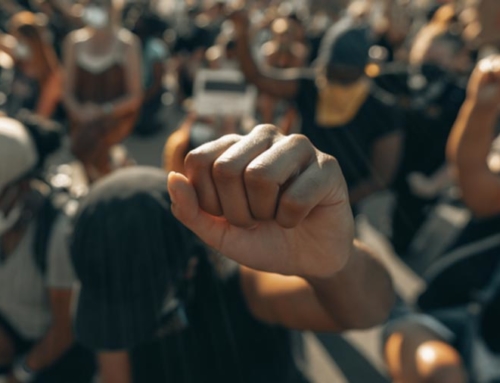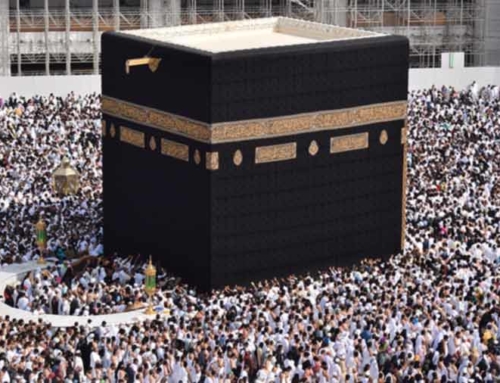By: Asif Ahmed
The Life and Legacy of Malcolm X
On February 21, 1965, the great African-American civil rights leader Malcolm X fell to an assassin’s bullet. The events of that momentous day represent a culmination of a life devoted to the relentless struggle for justice and an unwavering devotion to the pursuit of truth.
A Fearless Advocate for Civil Rights and Islam in America
Born Malcolm Little in Omaha, Nebraska in 1925, Malcolm’s life was tied inexorably to the African American struggle for civil rights, in a nation deeply divided along racial lines. Known for many years as a fiery speaker of the black-nationalist movement Nation Of Islam, Malcolm X’s quest for truth led him to study and travel (including a celebrated pilgrimage to Mecca in April 1964), and to eventually disavow all forms of racism in favor of the egalitarian ideals of traditional Islam. Towards the end of his life, he abandoned the name Malcolm X and adopted the name El-Hajj Malik El-Shabazz. However, he continues to be referred to by the name he held for much of his life, Malcolm X.
Malcolm’s fearless advocacy for black unity, his embracing of traditional Islam, and his independent ideas on black self-determination predictably created many enemies for him. His assassination represents a turning point, in the history of the American civil rights movement, and in the history of Islam in America.
American Muslims and Malcolm X
In his tireless struggle for a genuine emancipation of African-Americans, and his loyalty toward the truth above everything else, Malcolm X was a true American Muslim hero. On February 21, 2015, 50 years have passed since Malcolm X laid down his life for the ideals of justice, equality before the law, and egalitarianism; ideals that are ingrained in the Islamic faith. While American Muslims have recognized his contribution to the cause of Islam in America, Malcolm X’s rich legacy continues to be one of the most under-appreciated aspects of the American Muslim experience.
Time for Collective Introspection
According to a study conducted by Dr. Ihsan Bagby in 2011, 64% of all Muslim converts are African-American. A Pew study from 2007 shows African-Americans constitute about 20% of the overall population of American Muslims.
For the Muslim community, this ought to be an occasion for collective self-evaluation. Over the last 50 years since Malcolm X became El-Hajj Malik El-Shabazz, how much does the American Muslim community identify with the continued struggle of our African-American Muslim brethren, and the wider African-American community? How much awareness exists on the condition of the African-American Muslim community, especially the youth, in our inner cities? What are we willing to do to rectify the situation?
Fostering Racial Integration
Martin Luther King Jr. once famously remarked about 11 AM on Sunday morning being the most racially divided hour in America. While the level of segregation that continues to exist in the church may not be present in mosques, one cannot deny that much needs to be done in the area of racial integration within the Muslim community.
The Beginning of True Islamic Brotherhood
The 50th anniversary of Malcolm X’s assassination has the potential to mark a significant shift in how American Muslims address the issue of race. It is time to acknowledge that with notable exceptions, we have failed to understand and internalize all that Malcolm X fought fearlessly for, and that he eventually paid the price with his own life.
We must understand the predicament of black Muslims, which they are now facing amid growing Islamophobia, the prospect of having to combat bias against both their religion and their race.
Embracing Truth and Unity
Malcolm X espoused black supremacy for many years, but remained committed to a quest for truth. In his own words, “Despite my firm convictions, I have always been a man who tries to face facts, and to accept the reality of life as new experience and new knowledge unfolds. I have always kept an open mind, a flexibility that must go hand in hand with every form of the intelligent search for truth.” This should give us pause to reflect on how patient we need to be with those we consider as “outside the fold of Islam.”
It is possible to take the concept of Islamic brotherhood beyond mere clichés and something that we are willing to actively strive for. The changing reality of American Muslims requires that we recognize our challenges and the fact that we can effectively meet them only when we have a shared vision of our future as a truly Islamic community, “enjoining what is good, and forbidding what is evil” (Quran, 3:104) As Malcolm X himself put it, “The future belongs to those who prepare for it today.”
Adapted from an article on soundvision.com
Got Questions?
We have Answers. Get in touch now.








